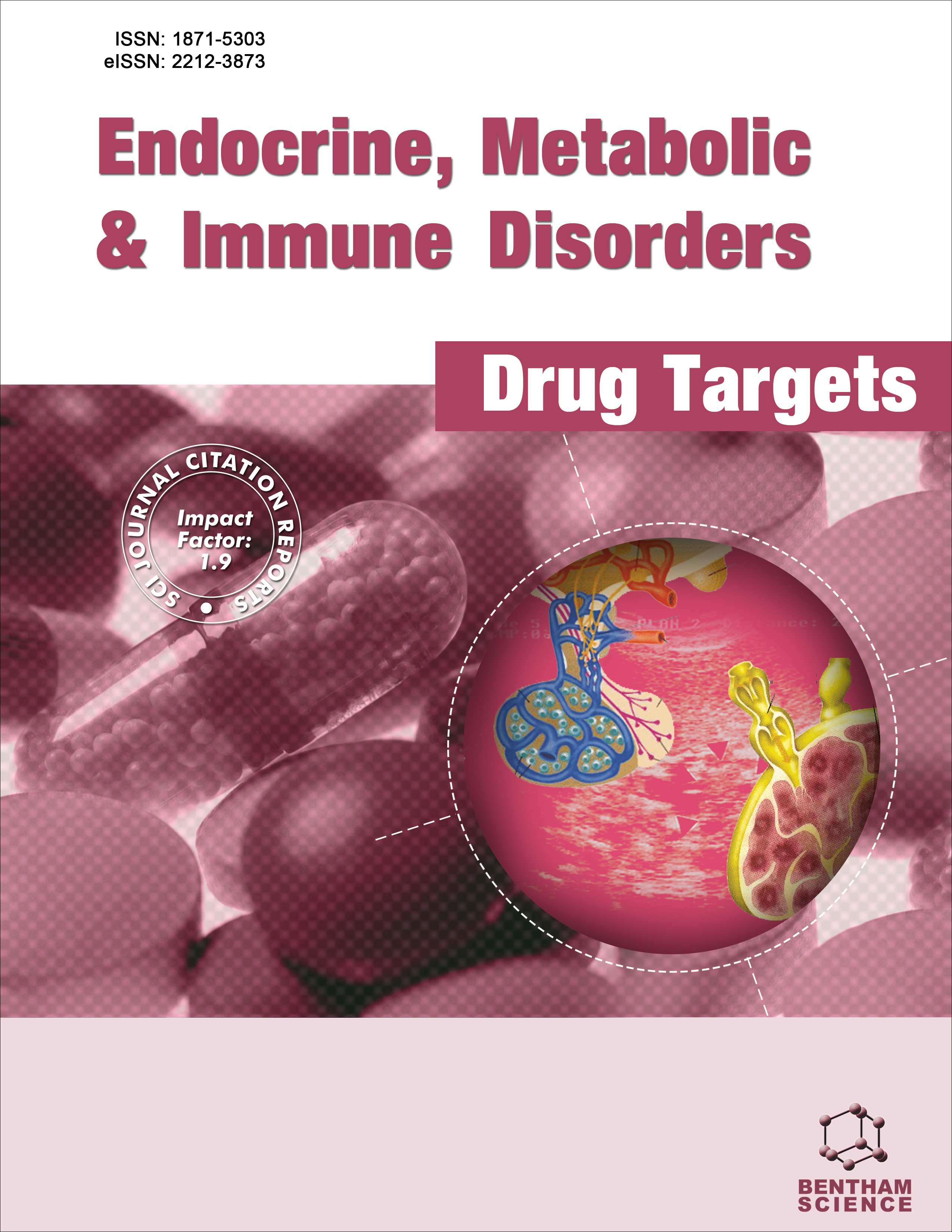-
oa Metformin and Inflammation: Its Potential Beyond Glucose-lowering Effect
- Source: Endocrine, Metabolic & Immune Disorders-Drug Targets, Volume 15, Issue 3, Sep 2015, p. 196 - 205
-
- 01 Sep 2015
Abstract
Metformin is an oral hypoglycemic agent which is most widely used as first-line therapy for type 2 diabetes. Metformin improves hyperglycemia by suppressing hepatic glucose production and increasing glucose uptake in muscle. Metformin also has been shown to reduce cardiovascular events in randomized controlled trials; however, the underlying mechanism remains to be established. Recent preclinical and clinical studies have suggested that metformin not only improves chronic inflammation through the improvement of metabolic parameters such as hyperglycemia, insulin resistance and atherogenic dyslipidemia, but also has a direct anti-inflammatory action. Studies have suggested that metformin suppresses inflammatory response by inhibition of nuclear factor κB (NFκB) via AMP-activated protein kinase (AMPK)-dependent and independent pathways. This review summarizes the basic and clinical evidence of the anti-inflammatory action of metformin and discusses its clinical implication.


